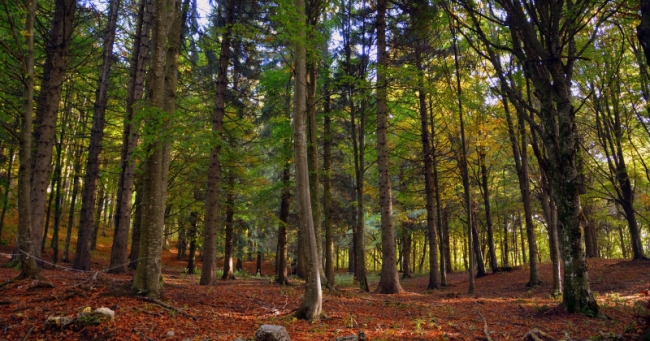The European forest sector phases numerous demands and challenges, and the need to mitigate and adapt to climate change might just be the biggest one of them. The issue is well acknowledged in high-level speeches but not much is known about what happens at the regional or local scale. What are the specific issues, how they are dealt with and by whom? To breach this gap, the Agricultural European Innovation Partnership (EIP-AGRI) established a Focus Group in spring 2017. 20 experts from different European countries with practical experience and technical knowledge were selected to reflect on the question “Which new management practices and tools can improve the climate mitigation and adaptation potential of EU forests?” The group consisted of farmers, foresters, land- owners, researchers and advisors. During 2018, the Focus Group produced 10 mini-papers that cover the important aspects of forest practices and climate change. The final report of their work was coordinated by EFI's Marcus Lindner and published on the 8th of January 2019. You can read the report here.
Another great challenge for implementing mitigation and adaptation measures in forest management is the fact that as the measures take place at local or regional scale, they are rarely communicated outside that area. Therefore, the knowledge of good and bad experiences does not spread. This was clearly recognized as one of the major constraints in the report. Thus, one of the Focus Group missions was to look for and highlight some of the positive examples and tools that are useful for climate change adaptation and mitigation. The group prepared 10 mini-papers that each deal with different aspects related to forest practices and climate. The topics of these papers were for example: small-scale forest management, climate smart silviculture and genetic resources, early warning and innovative risk management, and science-policy-practice knowledge exchange. Each of the mini-papers gives some examples of already existing tools and good practices that are used in the field. There is for example a tool that helps practitioners to decide on the right provenance for their future trees called the Climate Matching Tool (CTM). Other examples included a method to use unmanned aerial vehicles (UAVs) to detect bark beetle infestation in the forest and agroforestry practices that can be used efficiently to reduce accumulated biomass and decrease the fire risk, just to name a few.
Finally, the Focus Group also proposed seven ideas for the so-called Operational groups that bring innovation into practice. These ideas concerned inter alia methods to increase broadleaved species in forest regeneration, local adaptation, and landscape management as well as governance for the individuals. They also identified the gaps that future research needs to address. The overall message was: there is a lot of knowledge and experiences on climate change mitigation and adaptation across Europe, it just needs to be shared.
